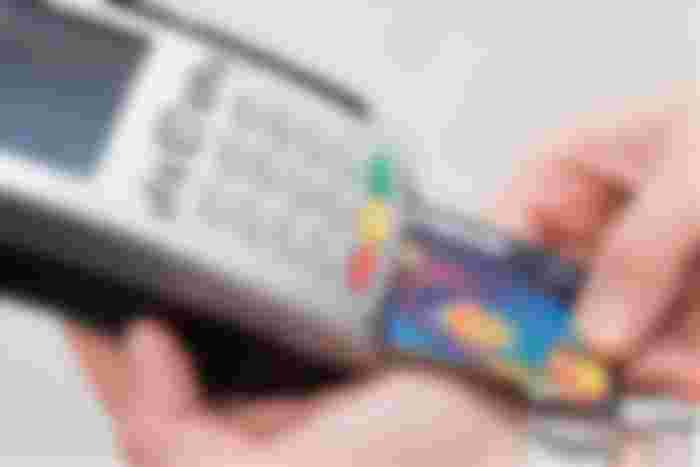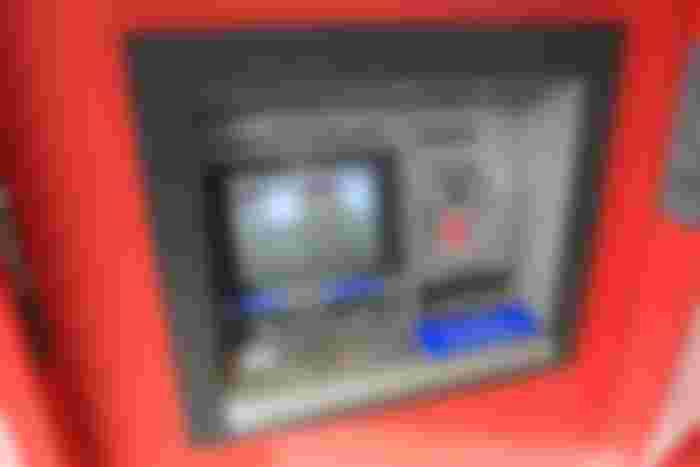Hello, my fellows Read.cash readers. I hope life rise and shines for you today.
I'm going to tell you about an unusual thing that happens in Venezuela. Imagine this scene. Let say I'm a cashier in a grocery store. And you give me your bank card to pay. I swipe your card and enter all the payment information. And when the card machine asks for the pin, I turn and ask you to tell it to me. Probably, you would think that I'm crazy by asking you for your secret pin. But here, that isn't a rarity. Let me tell you why here your Pin isn't so secret.
Some background
I won't overwhelm you with economic data from my country. But I'll give you some background so you can understand the situation a little.
Venezuela has been under hyperinflation since the end of 2017. We have the third-longest hyperinflation in history. And we're on the way to becoming the second. According to figures that the government recognizes (so the reality may be worst), the annual inflation in 2020 was around 3.000% (130.000% in 2018 and 9.000% in 2019). The devaluation of the bolivar is constant. And we have had two currency reconversions in less than 15 years, where the currency has lost 8 zeros.
Cash in bolivares is scarce. The last time I held a bolivar banknote in my hands was more than a year ago when gasoline was free. Yes, it cost so little that it was free, and the banknotes were to give some tips to those who attended the gas pumps. Now, gasoline is no longer free, but I can talk about that another day. The highest denomination banknote (which entered circulation in March of this year) is 1 million bolivars. Today is worth approximately US $ 0.25. That is the equivalent of a quarter coin.

Your Pin isn't so secret
When hyperinflation began. Some merchants and street vendors faced the problem of not being able to sell their goods or services since there wasn't cash. And also, the little cash available was useless because of their low value. Too many merchants hadn't bank card machines. So those who managed to get one avoiding difficulties because at that time there were a shortage of almost everything, even bank card machines. They began to ask for the pins with endless excuses. Some are a bit absurd the truth.
The internet connection was bad, therefore the bank card machine couldn't be moved.
Fear that the bank card machine would be damaged. And since they were so difficult to replace, they preferred that no one else touched them.
The bank card machine was located in a place that was difficult to access.
But perhaps the worst of all the arguments was that the amount in bolivars that people usually have in their bank accounts was so little that no one was afraid of being stolen. And it's true nobody wants to have bolivars. In a hyperinflationary economy, you'll always look for a way to protect your money by exchanging it for something of value. People here often take refuge in the dollar, and those without access to it have opted for cryptocurrencies. But a bolivar that falls into your bank account in hyperinflation. It's a bolivar that must be spent as soon as possible before it loses more purchasing power.
But the worst of all the scenes began to occur when, due to the shortage of bank card machines, several merchants agreed to use only one. In those days, you could go for example to buy eggs in a farm market, but the machine was of the one who sold coffee. So the egg seller went with several cards from his customers to swipe them through the point with all the pins written down on a piece of paper.
I remember that at first, the situation bothered me a lot. And I didn't buy in places where they asked me for the pin. Now, it still bothers me. But I end up giving it when I see that the discussion is not going anywhere, more than to affect my mood. But I guess to survive, people had to start trusting each other.
Although today, there are more payment options because there is no exchange control, and the dollar circulates freely. We have an interbank mobile payment system that works quite well. Many places accept PayPal, Zelle, and even cryptocurrencies. Cash dollars circulate freely. But even so, when you make a payment with a bank card in bolivars, it isn't strange that the cashier asks you for your pin. A bad habit that seems to be here to stay.

ATMs
Another unusual thing in Venezuela today are ATMs. Here, they only serve mainly to check account balances. Most of them haven't dispensed money for years. The main reason is the shortage of cash. But there is also the problem of the number of banknotes they could give you. Just think, how many 1 million bolivares banknotes you would need to withdraw the equivalent of $ 20. Today, the ATM would have to dispense you 80 bills for just $ 20. If the banknote is 500.000 bolivares, the number will be 160 bills only for $20.
Closing thoughts
It's curious that in a country where there are acts of violence, armed robberies, express kidnappings, and several types of scams orchestrated from prisons. On the other hand, people have found it necessary to trust each other to face difficulties. It's "normal" for us in Venezuela to be asked for our bank card pin. But it's far from normal usage. And very close of absurd. There is an immense security breach, and it's one more of the perversions that the entire economic reality of the country has brought us.
Obviously, in a country with these characteristics, payment with cryptocurrencies has a lot of fertile ground to be adopted. Hopefully, it will be like this soon. And in many places, they will accept cryptocurrencies and especially BCH.
And what do you think, would you give your pin in these circumstances?
To all my dear readers and wonderful sponsors, thank you so much!
Images credits on the caption.
Until next time! ;)
July 30, 2021


This is totally crazy! I wonder of identity theft is a common thing there?
This too is totally crazy! Savings become useless overnight? Unless all local currencies were put in forex account.
If the internet infrastructure is unreliable, how is it possible to pay with Paypal or Cryptocurrencies? Are mobile connectivity leaps and bounds better than internet connectivity?
Reading the rest of your article, it sounds like watching a sci-fi movie.